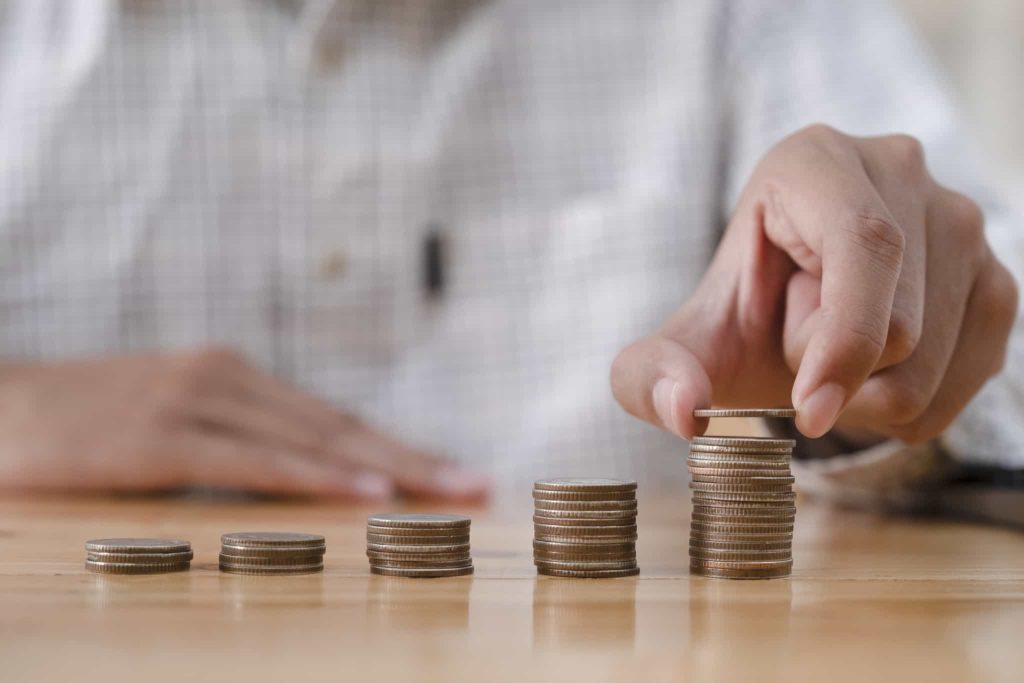At a time when Portugal has registered historical inflation values, the highest since 1992, it is essential to manage its finances carefully, namely by adopting Saving habits and methods for managing expenses. Whoever does it is contribute positively to your health and financial well-being.In this article we give 3 tips on how to improve your financial well-being, through saving habits and expense management methods. The adoption of this type of practices can have a great impact on their well-being, namely in the improving your mental health and well-being.
1. Adopt saving habits
Perhaps this tip is the most difficult to apply, due to the need for self-control to resist some impulses inherent in day-to-day expenses. However, the tip is simple, don’t consume more than what you need. They exist numerous saving habits, some of which can even be fun. Have you ever thought about the car trip you take every day to your work or gym? If you do these trips in your car, consider carpooling with others; consider family, acquaintances or co-workers, and enjoy socializing. Not all of these habits have the potential to amuse you, and some are easier to adopt than others. So you should consider:reuse everything possible in the kitchen (vegetable and vegetable skins are great for making natural and tasty broths); Avoid long baths and time-consuming;save water while brushing your teeth; attention to energy efficiency of the equipment you have (or buy), especially the light bulbs; Do not go to hungry shoppingas it will be more difficult to resist the urge to buy food you don’t need. Now, this list can go on, but the idea is simple: the important is the implementation of the savings mindset. In this case, habits begin to appear naturally. Also read: 7 changes in habits that can save hundreds of euros
2. Create an expense management system
It’s not always easy to make a effective management of our salary. There are many variables in the equation: fixed or variable expenses, rising and falling prices, and even special and unexpected needs. Thus, it is important to be prepared for possible setbacks. This is where expense management methods can come in very handy.The 50-35-15 system consists of allocating a percentage of the monthly budget to different categories of expenses:Essential fixed expenses (50%) – this includes housing expenses (whether rent or credit), transport, food, water, electricity, gas, telephone, internet, etc.; Lifestyle (35%) – this category includes expenses such as trips to the restaurant, gym membership or streaming services, beauty services, etc.; Savings and emergencies (15%) – if you do not have an emergency fund, you should start by accumulating money in a separate account up to an amount of approximately 6 times your monthly salary. When you reach this amount, start saving the 20% monthly separately. Occasionally, if you need to use the emergency fund (for example, if your car or an appliance breaks down), re-allocate this 20% until you reach the preset amount.
50-35-15 method in practice
For an example that a person who receives 900€ net monthly: Essential fixed expenses – 450€Lifestyle – 315€Savings and emergencies – 135€The percentages presented are intended to be indicative only, and to help improve the perception of all existing expense categories. Given the current economic situation, it is clear that these percentages may not be available to everyone. Depending on the monthly net salary and essential fixed expenses, the percentages may eventually be readjusted. However, the balance between the categories must be maintained. Notice that the purpose of this method is to impose quantitative limits on essential fixed expenses and lifestyle, which generally account for the vast majority of monthly expenses. The category that will help you the most is savings and emergencies by improving your financial health. It is with this money that you must make plans for the future and make your dreams come true, so the higher the percentage I was able to allocate, the better! Also read: How to use the 50-40-10 rule for children to learn to save?
3. Study, learn, and apply
It is often said that the best investment is in ourselves. And in this case, it is. The best way to adopt new savings habits and improve your personal finances is through constant learning. New content is regularly published, with different ideas and approaches to these topics. Analyze each and decide if they make sense in your personal and financial life.
Financial health and well-being
The concept of financial health concerns the way in which money matters are managed. If you are a person who has balanced finances, produces savings regularly, and is able to absorb unexpected expenses, it means that you have a good health and financial well-being.This concept of health is equally important to the physical and psychological health, because the two are interconnected. The lack of financial health is strongly associated with stress and anxiety, which can cause various health and well-being problems. proactively improve your financial health, through continuous learning and the adoption of savings habits and expense management methods. live for the money you spend; instead, it will reduce the need to constantly worry about financial decisions, result of the adoption of saving habits and expense management methods.
A professional writer by day, a tech-nerd by night, with a love for all things money.

